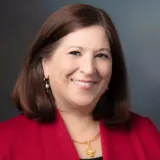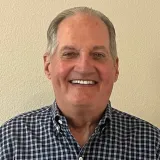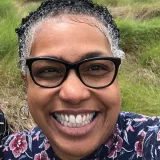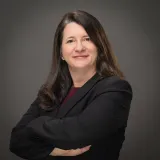The Language Connection: How Early Development Shapes Lifelong Reading Success
Release Date: Thursday, April 09, 2026
During this episode of EDVIEW360, we welcome Dr. Ann P. Kaiser, renowned professor at Vanderbilt University and one of the nation’s leading experts on early language development. With decades of groundbreaking research, Dr. Kaiser has illuminated how the earliest years of language learning—long before children enter school—lay the foundation for reading and academic success. Her work bridges developmental psychology, linguistics, and education, offering educators and administrators a holistic framework for understanding how language, cognition, and environment interact to shape learning outcomes.
Listeners will gain practical insights into how responsive adult-child interactions, linguistically rich environments, and intentional teaching strategies can transform early language development and, ultimately, reading proficiency. Dr. Kaiser’s contributions have not only advanced the science of reading but also provided educators with actionable tools to support diverse learners from the start.
Listeners will learn:
- Why language development in the first three years is a powerful predictor of later reading success
- How biology and environment interact to influence children’s language growth
- The role of responsive, linguistically rich adult-child interactions in accelerating development
- Practical strategies for supporting oral language skills in preschool and early elementary classrooms
- How early language differences can signal later reading challenges such as dyslexia or developmental language disorders
- Ways educators can strengthen oral vocabulary, syntax, and phonological awareness to support struggling readers
- How social-emotional and cognitive development are intertwined with language learning
- Why intentional teaching of language foundations is essential for equity and long-term student achievement
AI and a New Era of Math Tutoring: Have We Seen This Movie Before?
Release Date: Thursday, March 26, 2026
Join author and respected mathematics expert Dr. John Woodward for a provocative look at how technology—from microcomputers to AI—has shaped, challenged, and often overpromised its impact on math education. Drawing on decades of research and classroom experience, Dr. Woodward explores how shifts in computing power, curriculum design, and student motivation has influenced what we teach, how we teach it, and why it matters.
This session will begin by drawing on historical trends in educational computing to today’s much discussed and possibly overhyped promise: Can AI tutor students in math in ways that match if not exceed human capabilities? Parallels to this kind of promise can be found during the last 45 years since microcomputers emerged in education in the early 1980s. Dr. Woodward will also drill down into what tutoring and curriculum mean in light of AI.
What You’ll Learn
- How technology has historically influenced math instruction—and what’s different about AI
- Why motivation and mindset matter more than ever in today’s tech-saturated classrooms
- Why tutoring students who are struggling with this week’s material in math is a different issue from meeting the instructional needs of students who are months or years behind grade level
- What educators should consider before adopting AI tools for math learning
MTSS: Ensuring Structured Literacy Across All Tiers and the Importance of Oral Language
Released: Thursday, February 19, 2026
During this insightful episode of EDVIEW360, literacy expert Dr. Antonio Fierro joins us to unpack the critical role of Multi-Tiered System of Supports (MTSS) frameworks in ensuring explicit, Structured Literacy instruction reaches every learner. Dr. Fierro provides a clear, operational definition of language and explains the importance of embedding oracy across all language systems and across all tiers of instruction. His perspective highlights why collaboration between language and literacy is not optional—it is foundational to building equitable systems that serve all students.
Listeners will gain a deeper understanding of how Structured Literacy can be implemented with fidelity across Tier 1, Tier 2, and Tier 3 instruction, and why oracy, when intentionally embedded, is foundational to reading proficiency. With a special emphasis on English learners, Dr. Fierro challenges educators to rethink how language and literacy intersect, and how intentional, evidence-based practices can transform outcomes for diverse classrooms.
What You’ll Learn
- How a clear, operational definition of language strengthens MTSS by promoting coherence and consistency across Tier 1, Tier 2, and Tier 3 instruction
- Why oracy must be intentionally embedded across language systems and instructional tiers, rather than treated as a standalone or developmental component
- How Structured Literacy instruction, when aligned with oracy, better supports reading proficiency—particularly for English learners
- Practical ways educators can foster meaningful collaboration between language and literacy to improve outcomes for all students
Rocket Science Revisited: Where Should Reading Research Take Us Next?
Released: Thursday, January 22, 2026
In this powerful episode, two of the most respected voices in literacy education—Dr. Louisa Moats and Dr. Tim Odegard—come together to discuss the urgent need for systemic change in how reading is taught, understood, and supported across the U.S. Drawing from decades of research, policy work, and classroom experience, they explore the persistent gaps between what science tells us about reading and what many educators are still expected to implement. Their conversation is candid, evidence-based, and deeply rooted in a shared commitment to literacy as a civil right.
Dr. Moats reflects on the evolution of her work, including the impact of her seminal paper “Teaching Reading Is Rocket Science,” and the barriers that continue to prevent widespread adoption of structured literacy. Dr. Odegard brings a complementary perspective from his leadership at the Tennessee Center for the Study and Treatment of Dyslexia, highlighting the importance of teacher preparation, data transparency, and the moral imperative to serve all learners—including those with dyslexia. Together, they challenge assumptions, clarify misconceptions, and call for courageous leadership at every level of education.
Listeners will walk away with a renewed understanding of what it means to teach reading well, and a renewed understanding of what is necessary to capitalize on the lessons of reading science.. This episode is essential for educators, administrators, policymakers, and advocates who want to move beyond buzzwords and toward meaningful, measurable change.
What Dr. Moats and Dr. Odegard will discuss:
- Why “Teaching Reading Is Rocket Science” remains relevant today
- Priorities for improving implementation of evidence-aligned instruction
- Why higher education holds the key to sustaining literacy reform and preparing future teacher educators
- What the national landscape of dyslexia laws reveals about progress—and what’s still missing in impact research
- Why current policies overemphasize foundational print skills while neglecting morphological and etymological depth in spelling and word study
- How oral language and comprehension continue to be overlooked in screening, curriculum adoption, and teacher preparation
- What Kansas and Ohio’s systemic literacy blueprints teach us about building coherent, statewide literacy systems

Intensive Intervention for Tier 2 & 3: Success for Multilinguals and all Students Who Struggle
Released: Thursday, December 18, 2025
Join this fascinating discussion about intensive intervention and how educators can best help students who struggle with literacy, including English learners. Our guest Dr. Elsa Cárdenas-Hagan will share inspiring and useful insights about the topic. As Cárdenas-Hagan says, “Literacy is a human right, and all students, including those who are linguistically diverse, should have access to Structured Literacy.” Our discussion about this instructional approach will illustrate how it is the bridge to equity, because it includes the foundational skills of reading and writing in addition to the development of oral language and comprehension in an explicit and systematic manner.
This lively discussion with Dr. Cárdenas-Hagan will explore: How students who struggle with learning to read need extended opportunities for learning and practice; Ways educators can appropriately intervene at Tier 2 and Tier 3; How multilingual learners benefit from the use of cross-linguistic features within this instructional approach.
Listeners will learn:
- Adjustments all teachers can make for ELLs
- How to apply research to practice
- How to collaborate for better results and better outcomes
- Why more interdisciplinary work is needed in intervention
The Science (and Art) of Implementation: Using Research To Improve Outcomes
Released: Thursday, November 13, 2025
Join us for this insightful and inspiring discussion with a true literacy hero Margaret Goldberg, co-founder of The Right to Read Project. During this podcast, we’ll talk with Goldberg about the next step in the science of reading movement: Educators moving from research consumers to active research participants. While there’s been progress bringing research awareness to classrooms, we now face a moment where the future of reading science depends on practitioner involvement.
This episode examines how educators have moved from implementing prescribed practices to actively seeking evidence-based approaches, and why this momentum can’t stagnate. With uncertain federal support for education research, we must bridge the “last mile” between research and practice—the phase that matters most to students and teachers.
Drawing from personal experiences, this episode reveals what it means to move from research consumer to research contributor, including the moments that change how educators view and engage with scientific evidence. We’ll discuss research-to-practice partnerships and how thinking like a scientist can change classroom implementation.
Listeners will learn:
- Where the science of reading movement stands today
- Why this isn’t another pendulum swing in education
- The importance of bridging the “last mile” between research and practice
- What it feels like to move from research consumer to active participant
- Practical steps for joining research-to-practice partnerships
- How to approach classroom implementation with a scientific mindset
- Why practitioner involvement is essential for sustaining progress
- Strategies for participating in science
Essential listening for educators, administrators, and literacy advocates ready to help shape the future of reading instruction and ensure research continues to benefit students in classrooms.
Connecting the Science of Reading to the Science of Learning
Released: Thursday, October 23, 2025
The “science of reading” often gets reduced to “phonics,” but there’s a lot of science that relates to reading comprehension as well.
If we look at typical comprehension instruction through the lens of cognitive science, it becomes clear that we’ve unintentionally made reading and writing much harder than they need to be by separating them from each other and from content-area instruction.
But cognitive science also tells us that a content-rich curriculum combined with explicit, manageable writing instruction can provide all the benefits of science-informed instruction and more. If we break down the artificial walls separating reading, writing, and learning, we can enable all students to reach their full potential.
Listeners will learn:
- Why we need to do more than “fix phonics” if we want all students to become fully literate
- How we’ve been making reading and writing harder than they need to be
- Why it’s not possible to apply principles grounded in cognitive science to typical comprehension instruction
- How a content-rich curriculum combined with explicit writing instruction can provide all the benefits of science-informed instruction—and more

The Simple View of Reading and Its Extension As the Cognitive Foundations Framework: A Conversation With Dr. Wesley Hoover
Released: Thursday, September 25, 2025
Join us for this informative and enlightening podcast as we delve into the complexities and nuances of the Simple View of Reading (SVR). Our distinguished guest, Dr. Wesley Hoover, will explore how SVR remains a foundational cognitive theory that effectively captures the critical relationship between language comprehension and word recognition in determining reading comprehension.
Dr. Hoover will discuss the key elements of the SVR, clarifying its purpose as a cognitive theory rather than a mere description or heuristic. Our conversation will reveal common misconceptions about reading, emphasizing that while it may seem simple, the interplay of its two critical components—word recognition and language comprehension—reveals a much richer complexity. Dr. Hoover will also introduce the Cognitive Foundations Framework (CFF), an extension of the SVR that expands our understanding of the skills and abilities required for achieving effective reading.
Whether you’re a teacher, an administrator, or simply passionate about literacy, this podcast offers a deeper understanding of what it truly means to learn to read, the cognitive capacities involved, and how we can better support learners on their journey.
Listeners will learn:
- An understanding of the SVR and its importance in reading comprehension research
- The complexities and limitations of the SVR, including some unanswered questions about reading skills and development
- The roles of word recognition and language comprehension as the two essential proximal capacities necessary for reading success
- Details about the Cognitive Foundations Framework (CFF) and how it serves to expand the SVR’s insights about reading skills
- Effective strategies and approaches for reading instruction and remediation based on the insights derived from the SVR and CFF
- Practical applications for educators and parents to better support learners and foster reading proficiency
Tune in for this thought-provoking conversation that will challenge assumptions and celebrate the intricacies of reading! Listeners will leave with a richer understanding of the cognitive foundations of reading and how to apply this knowledge in various educational contexts.
How We Remember Written Words and Why Some Kids Struggle
Released: Thursday, August 21, 2025
Join us for this fascinating discussion with David Kilpatrick, Ph.D., who has spent most of his career studying how we learn to read and the most effective ways to teach literacy. Dr. Kilpatrick explains how, with the right knowledge and tools, teachers can change lives because most word-level reading problems are correctable, and if we start early, preventable.
The discussion will focus on how children learn to read and remember words and why some children struggle. Understanding the nature of word-level reading development and word-level reading problems will guide assessment, instruction, and intervention. Dr. Kilpatrick will emphasize how helping educators establish a knowledge base allows them to implement more effective instructional and intervention practices.
Listeners will learn:
- How students turn unfamiliar words into familiar and instantly accessible written words
- Why some students struggle in remembering written words
- How to help students who struggle in word-level reading
And more!
Dr. Maria Murray of The Reading League: Supporting Reading Difficulties for All Students
Released: Thursday, July 24, 2025
In this insightful episode, we sit down with Dr. Maria Murray, CEO of The Reading League, to explore the transformative impact of evidence-aligned literacy instruction. Passionate about ensuring all students have access to effective reading education, Dr. Murray shares her journey, discusses the science of reading, and highlights why early intervention is key—especially for students struggling with dyslexia or learning English.
Join us as we uncover:
- ✔ The importance of early intervention and how it shapes literacy success
- ✔ How The Reading League is helping educators shift to evidence-aligned instruction
- ✔ Strategies to support struggling readers, including those with dyslexia
- ✔ Practical guidelines and tools for educators looking to improve reading outcomes
This is a must-listen for educators, school leaders, and literacy advocates dedicated to making reading instruction accessible, equitable, and impactful.
Listen now and be part of the conversation on literacy transformation
Struggling Adolescent Readers: Planning for Successful Implementation of MTSS
Released: Thursday, June 19, 2025
- Critical components of MTSS, specifically at the secondary level
- How to leverage assessment data to determine student skill deficits
- The importance of aligning interventions with student needs
- Instructional practices that can be implemented in core instruction across content areas to prevent further reading difficulties and support struggling readers
Not Just Behind—Stuck: Helping Students Cross the Bridge to Skilled Reading
Released: Thursday, May 15, 2025
Supporting older, novice readers requires more than just phonics or comprehension strategies—it demands a multicomponent intervention approach. Students need structured instruction in vocabulary, syntax, text processing, and writing when working with complex texts. But for this to be effective, intervention must be intentional, well-planned, and fully supported.
During this episode, Dr. Mitchell Brookins, a nationally recognized literacy practitioner, shares insights from a middle school in New Orleans, where a multicomponent intervention transformed how students engaged with rigorous texts. He breaks down why successful intervention isn’t just about what happens in the classroom—it also requires:
✅ A Structured Framework—A clear instructional model that ensures students get explicit, systematic instruction in vocabulary, syntax, text processing, and writing.
✅ Intentional Text Selection—Choosing texts that are both rigorous and accessible, ensuring they build students’ literacy skills while maintaining engagement.
✅ A Strong Coaching System—Teachers need consistent guidance and professional learning to sustain and refine their instructional practices—intervention is too vital for teachers to navigate alone.
If you’re working with older struggling readers, this episode will challenge conventional approaches to intervention and equip you with the tools to help students succeed with complex texts—no matter their starting point.
Please join us!
Voyager Sopris Learning EDVIEW360 Podcast Series
Add your email here to sign up for EDVIEW360 blogs, webinars, and podcasts. We'll send you an email when new posts and episodes are published.

Pam Austin has over 36 years of experience as an educator. Her current role as a Professional Learning Facilitator Manager and previous positions as the Director of Instructional Technology, and Professional Learning Facilitator includes over 17 years of experience in training and supporting districts in various literacy and numeracy interventions for Voyager Sopris Learning in addition to delivering LETRS professional development sessions.
She has also shared her love of proven VSL solutions as a product marketing manager when she began her role as a EDVIEW360 podcast host in 2019 and continues to this day. Her goal is to aid teachers in changing the lives of students so that they not only become proficient and successful learners, but also, individuals confident in pursuing personal and professional life goals. She previously held the role of literacy specialist at the Center for Development and Learning (CDL) now the Center for Literacy and Learning.
As an educator, in the New Orleans Public Schools for 14 years, she served as an elementary teacher, a reading interventionist, a school-based reading coach, and a Central Office Field Literacy Facilitator. These varying roles allowed her to gain a myriad of experiences that has enhanced her ability to work in collaboration with other educators, schools, and districts for impactful professional learning. Pam’s first steps into a life-long career as an educator began as a fourth-grade teacher, in small school, in the Archdiocese of New Orleans. And the journey continues…

Cassondra Mantovani brings more than 25 years of leadership experience at the intersection of education, leadership, and technology–leading teams that directly support teachers and students in classrooms every day across K–12 and higher education. She currently serves as Vice President of Revenue & Operations for Voyager Sopris Learning® & Kurzweil Education, where she has spent more than a decade partnering closely with educators and school leaders to improve outcomes for students.
As host of EDVIEW360, she is passionate about making complex, often challenging education topics accessible and actionable—turning big ideas into meaningful takeaways, insights that inspire broader audiences, and taking a student-centered approach to the advancement of education. On EDVIEW360, she loves sitting down with some of the smartest and most passionate minds in education to explore not only what they do, but why they do it—uncovering the aha moments, lessons learned, and perspectives that move the field forward.
Born and raised in Los Angeles, she has called Dallas home for the past decade. She is deeply driven by the belief that learning to read, empowering students to graduate, and valuing education can fundamentally change the trajectory of a person’s life—opening doors to enhanced life opportunities and lasting family legacy.
Above all, she is a proud boy mom, a lifelong learner, and a steadfast advocate for better serving students—today and for generations to come.











